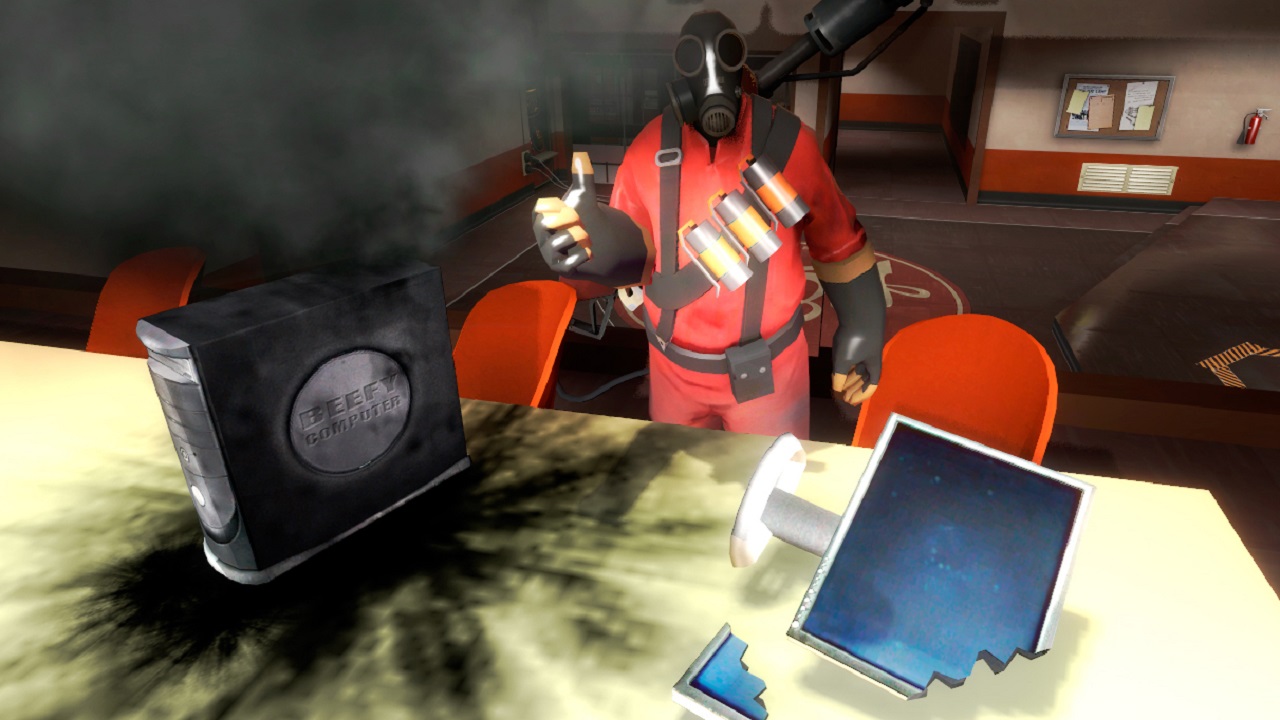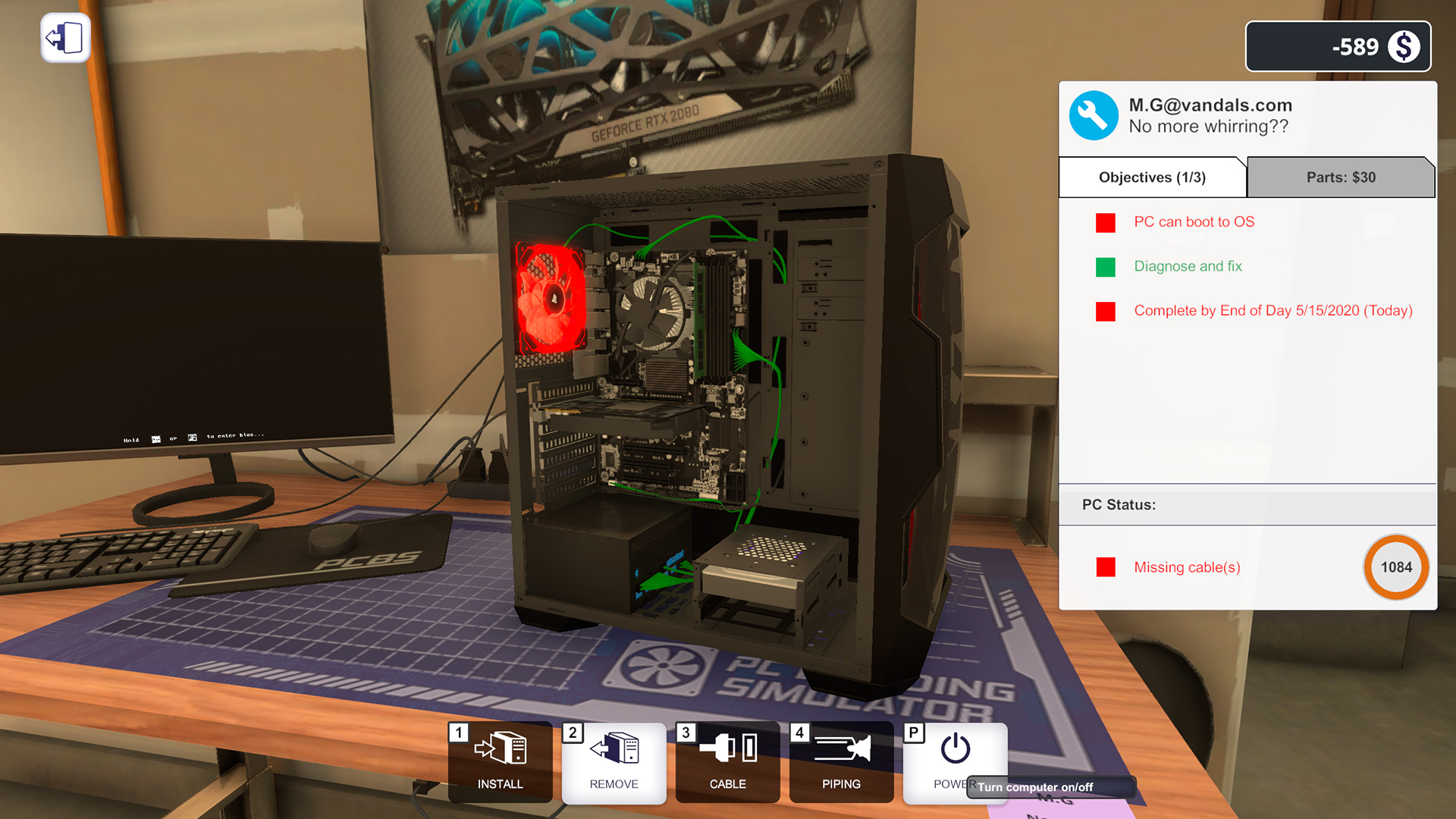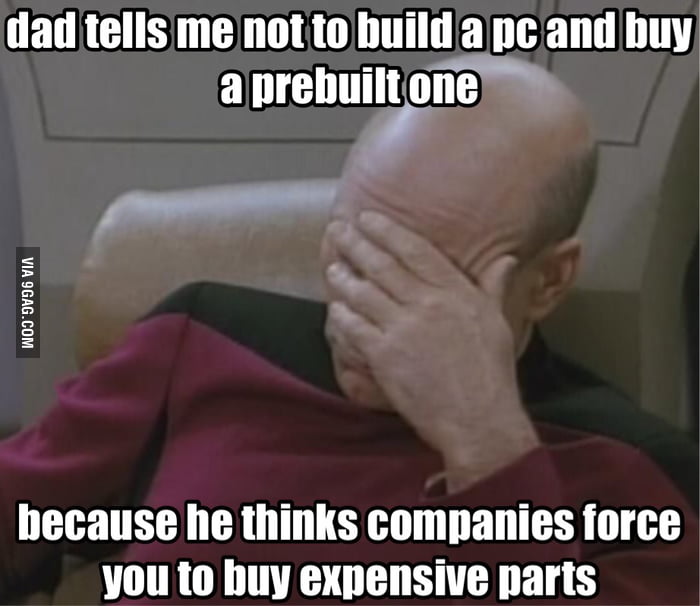Why did the PC gaming community learn to hate prebuilt computers?
Building your own PC has long been a fun, money-conscious option. But when did it become a badge of honor?

A dust-capped Alienware Aurora whirrs underneath my desk. It arrived with turquoise accents, onyx plates, and an array of parts pre-assembled by the boutique manufacturer. I've never constructed my own machine by hand. For many years, I did the majority of my gaming on a laptop, which was packed with so much tech that it felt like hauling a cement block around in my backpack. But in 2020, I decided to take a formal jump into the hobby. The Aurora is a no-doubts-about-it gaming PC. At last, I had finally seen the way, the truth, and the light.
So why did I still feel like a bit of a fraud? Because I knew that the purest distillation of PC gaming—its Platonic Ideal—has nothing to do with the games themselves. To truly feel like I belonged I needed to piece together the guts of a machine like Lego blocks, snapping the graphics cards and RAM into place, before the moment of truth where I pressed the power button and hoped that everything fired without a hitch. A prebuilt, on the other hand, remains anathema to the lifers.
Battle lines
How did they learn to resent each other?
Confirmation of this bias is everywhere. You need to look no further than the dominant Reddit community for the scene, titled r/PCMasterRace, where you can watch ASMR-tinged videos of RAM installation, where a white-gloved patron delicately attending to the bulky NVIDIA packaging like it was a bottle of expensive port. (In contrast, a Starter Pack-style meme on the forum claims that prebuilt machines are overpriced, and could potentially burn down your house.)
On Steam, anyone can purchase PC Building Simulator, a delightfully meta inversion on the hobby, in which you will get to solder together an endless supply of new machines—because who needs to game when we can instead be mesmerized by a VSync sizzle reel?
Some of our brethren in the press have marinated on the same tension. Earlier this year, PCWorld wondered aloud whether or not "prebuilt PCs sucked," and came to an inconclusive answer. This dynamic has persisted across generations of gamers, despite the fact that Alienware owners and Newegg snipers have almost everything else in common. How did they learn to resent each other?
"My family bought our first PC in 1995 and over the years it became a Frankenstein’s monster of parts scavenged from computers we brought home from our local dump," says Stephen Kick, CEO of Nightdive Entertainment, a publisher that resuscitates old, out-of-print PC classics, and just completed its remake of the first System Shock. "It was through this experience I learned how to build a computer and I think for many people it became a right of passage to put your own machine together. When the first boutique pre-built PC’s first became available myself and all my friends dreamed of getting one, but the prices were astronomical. If there was any animosity back then, it’d be because we were envious."
I am not quite as old as Kick, but I too remember what it was like to visit a friend's house who was blessed with a monolithic super-computer; cranking out the first Far Cry with sweatless fidelity. (My Sony Vaio could never hope to compete.) But strangely, a sense of envy no longer demarcates the prebuilt/do-it-yourself cultural divide. If anything, the jealousy has mutated to schadenfreude.
Keep up to date with the most important stories and the best deals, as picked by the PC Gamer team.

It is mainstream consensus today that buying a smattering of your own parts and assembling them in a PC case is cheaper than the glossy premiums you can expect at Alienware, Lenovo, or Acer. (There are some inherent contradictions to this claim. The chip shortage has made GPUs scarce and onerously pricy, but patching together a build a la carte, while unbound from the limits of the retail prefabs, does usually pay off long term.) So yes, while custom-PC adherents might be elitist, much of that pretension is rooted in a desire to ensure their fledgling newcomers—Aurora owners like me—aren't getting a raw deal.
"Generally, if you're going for the most bang for your buck, then you're probably going to be at least slightly better off with a custom built machine. A lot of the hostility towards those who buy a prebuilt is, potentially, a frustration that they're getting a bad deal, which comes off as an attack on the individual," says Jesse, a 33-year old from Charlottesville who moderates the r/BuildAPC forum. "Some people are definitely elitist, but I do think a lot of it comes from a misplaced frustration that certain buyers aren't willing to consider their own construction."
There's a funny paradox to that trend. Elitists in every other field in geekdom—from Warhammer marshals to flight-sim aficionados—all tend to look down on those who aren't dumping a ton of their hard-earned capital in the hobby. But in the PC gaming contingency, there is nothing more casual than splurging on an all-in-one case. John Linneman, Senior Staff Writer at the graphics czars of Digital Foundry, tells me he generally prefers to customize his own machines because he feels that store-bought PCs are usually compromised in some form or fashion. But he also ruminates on the more physical, less academic joys of the ritual; cracking open the shell and installing all of his lovingly acquired components inside. There is a dignity in simply learning how a computer works, with your very own fingers.



"It's a fun exercise that enables a deeper understanding of how a PC functions, which is valuable. In some ways, it's never been easier to assemble a PC," says Linneman, while also noting that some aspects of computer construction can be downright frustrating. In a recent build, his PC seized up on a cold boot for no discernable reason at all. The culprit was a highly specific adapter converting DisplayPort to VGA. "This was a special case but there was zero indication what was causing the problem," continues Linneman. "What I'm saying is that, when something goes wrong, it can be frustrating and not everyone has the desire or wherewithal to suss out the root cause."
Linneman also speculates that the prebuilt cultural schism might slowly be mending, or at least becoming less relevant than it was in the past. He points to the Steam Deck, Valve's hugely popular portable PC which might go down in history as the single most popular prebuilt computer ever brought to market. The Steam Deck hasn't been dogged by nearly the same level of snobbery that's historically flagged the desktop community, and as PC gaming becomes progressively more agile and unburdened by prohibitive price thresholds, perhaps its hardcores-only seclusion will also wash away.
Peace coalition
Would we be better for it? I'm not sure. I'd still like to build a PC myself someday, if only because the war stories from those who've mastered the process tantalize me. Kick notes that he flirted with prebuilt computers after reaching financial independence, but come upgrade time, he returned to his roots and started stalking PCPartPicker once again.
"The technology had changed so dramatically since the last time I built a PC that it was a little daunting, but once all the pieces were in front of me it was incredibly easy," said Kick. "After it was all together I not only felt accomplished but familiar with all the components and much more comfortable should I have to troubleshoot any issues."
"Maybe someone who put the effort in to learn how to build their own machine feels like they earned it over someone who bought a prebuilt PC," added Kick.
Eventually the Aurora will be outpaced by the processing curve. The latest slate of releases will be adjusted down to "High," from "Ultra," and a familiar storm of FOMO will gather in my head. Maybe then I'll finally take the dive, and lay out all of my gimmicks and doodads on the floor like an operating table. I think that's what PC building ought to be in the future. Not a mandated rite of passage, or a hazing method to separate the wheat from the chaff. Instead, it will simply be a fun thing to do, for those adventurous enough to do it.

Luke Winkie is a freelance journalist and contributor to many publications, including PC Gamer, The New York Times, Gawker, Slate, and Mel Magazine. In between bouts of writing about Hearthstone, World of Warcraft and Twitch culture here on PC Gamer, Luke also publishes the newsletter On Posting. As a self-described "chronic poster," Luke has "spent hours deep-scrolling through surreptitious Likes tabs to uncover the root of intra-publication beef and broken down quote-tweet animosity like it’s Super Bowl tape." When he graduated from journalism school, he had no idea how bad it was going to get.

